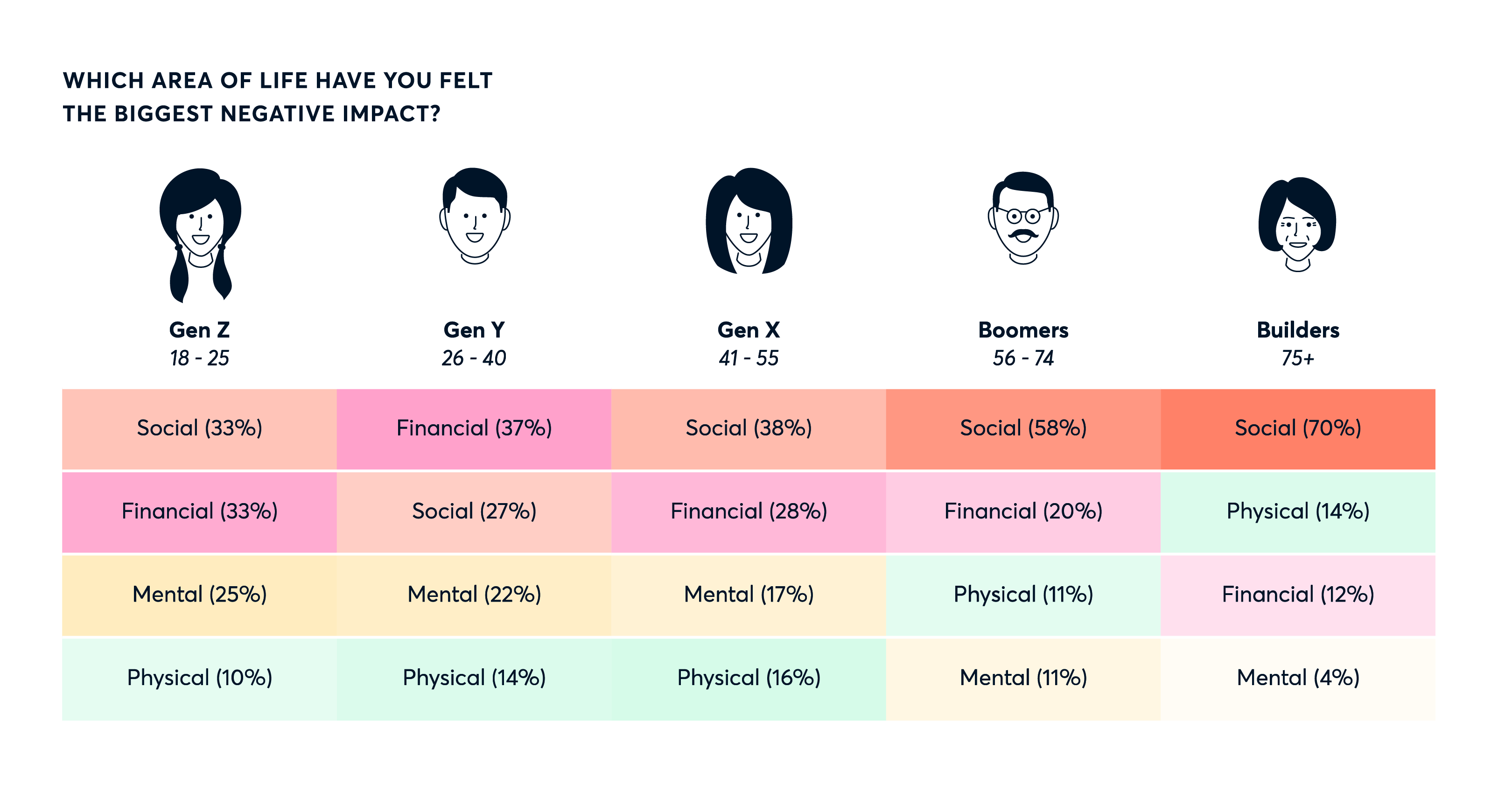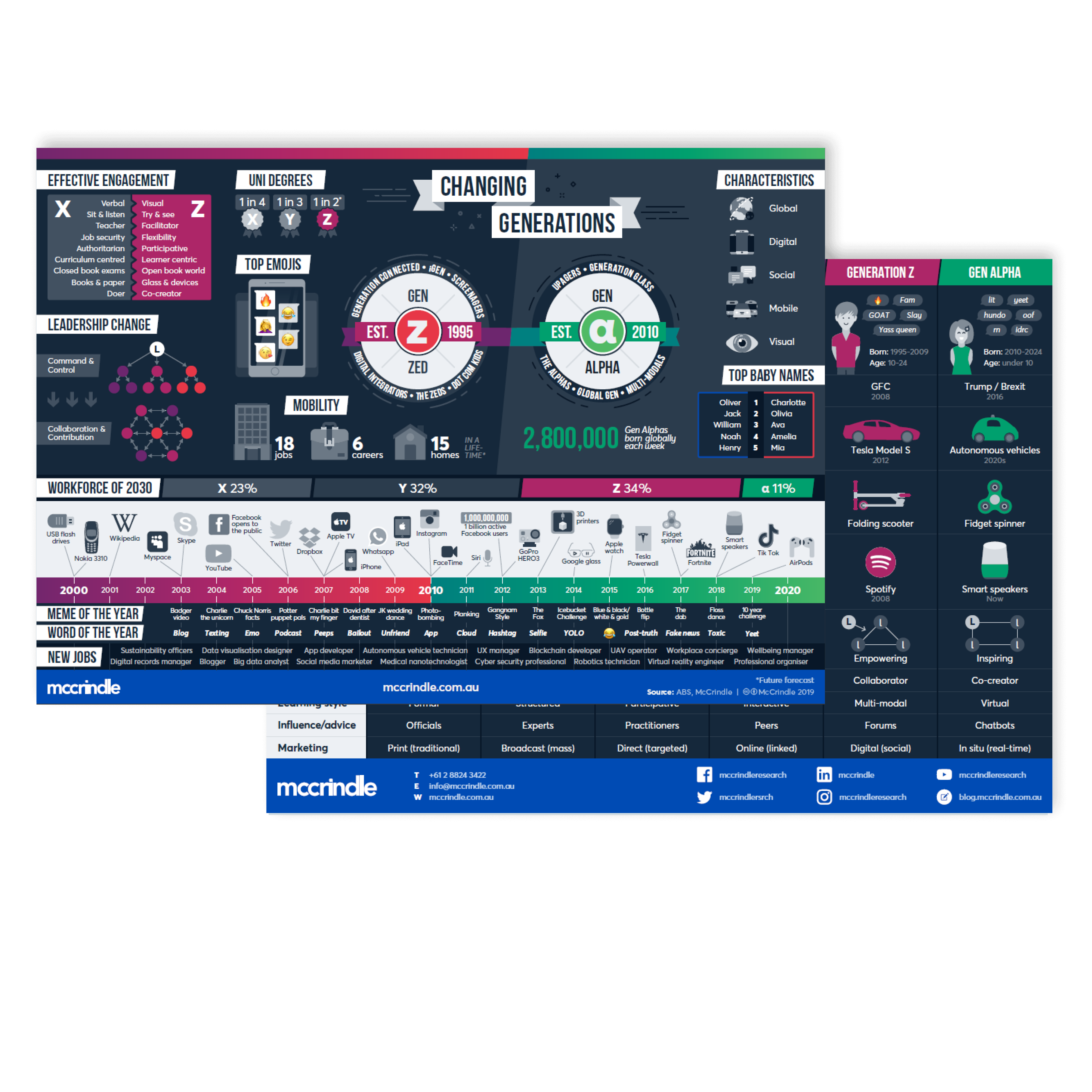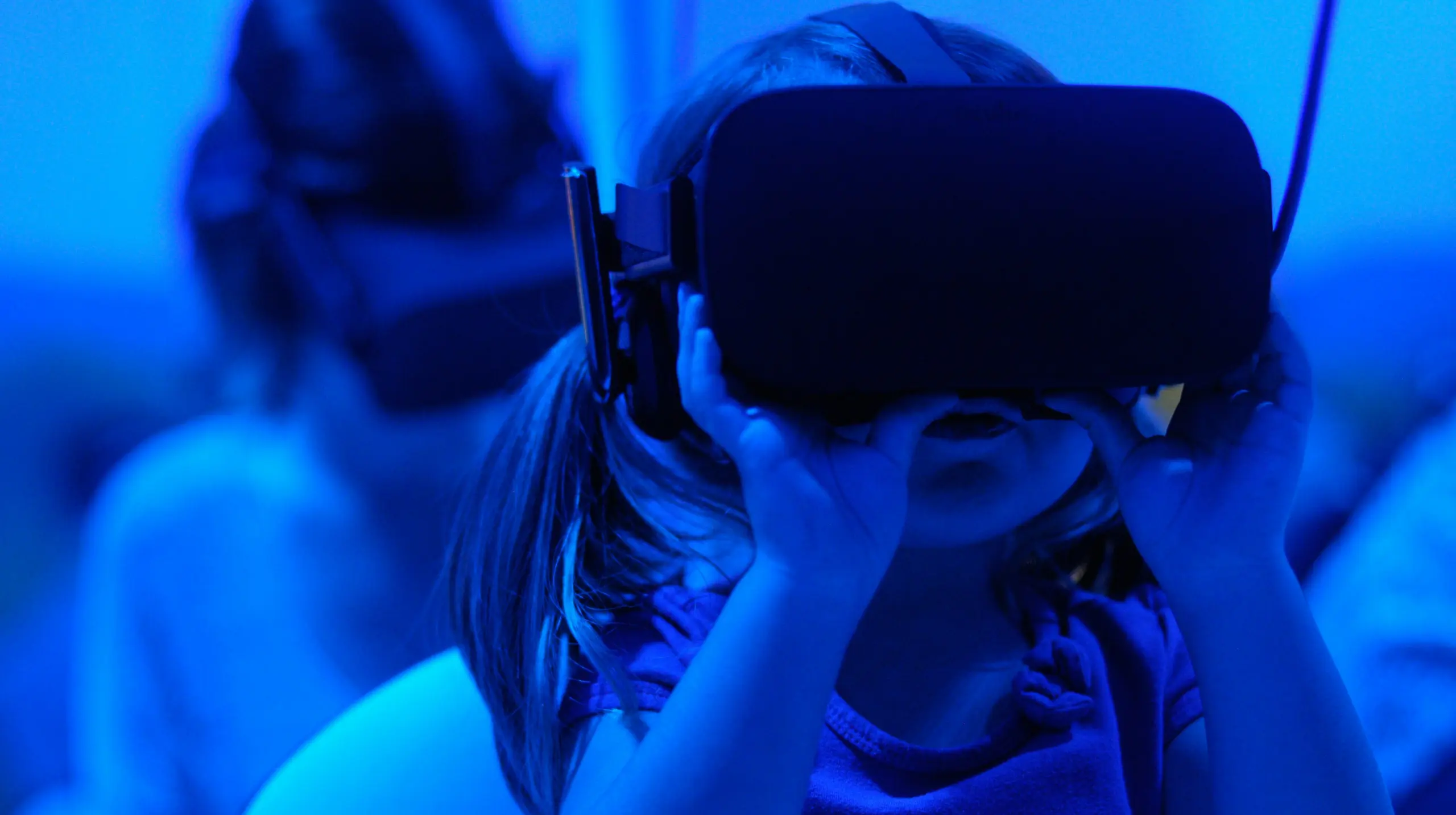Generation Z
Mental health, wellbeing and resilience of the emerging generations during COVID-19

During the COVID-19 pandemic and periods of social isolation, one of the biggest impacts was on people’s health – not just their physical health but their mental health, wellbeing and resilience.
The biggest impacts of social isolation on Gen Z
When asked about the biggest impacts of social isolation, Generation Z were most likely to say that boredom (51%), less physical activity (47%) and increased feelings of loneliness (41%) were impacting them the most, and significantly more so than any other generation. They also indicated that they were more likely to see the negative impacts of increased screen time.
The emerging generations most likely to experience stress and anxiety from COVID-19
While not as physically vulnerable as their older counterparts, the emerging generations were also more likely to say they experienced increased anxiety and stress. According to our national research during the pandemic, almost half (49%) of Gen Z said they felt anxious about the unfolding COVID-19 situation, with 1 in 4 (25%) saying the biggest negative impact of COVID-19 has been on their mental health (more so than any other generation).
The fact that these generations have never lived through anything like this before is a reason for their increased anxiety. Another is that they were a ‘more anxious’ generation even before COVID-19. Currently, around one in four young people aged 15 to 19 years meet the criteria for having a probable serious mental illness. Of concern, there has been a significant increase in the proportion of young people meeting this criteria; data shows that it increased by more than 20% in the most recent five-year period. According to global research, mental illness contributes to 45% of the global burden of disease among those aged 10 to 24 years.1 This is also reflected in the American Psychological Association’s annual Stress in America report, which concluded in 2019 that Generation Z adults indicated the highest average stress level of any demographic.2
Younger generations are also more likely than their older counterparts to believe the COVID-19 experience will have a negative impact on the next generation of children’s mental health (88% Gen Z and 71% Gen Y, compared to 69% Gen X, 50% Baby Boomers and 48% Builders).
Keeping this in mind as we lead, communicate, engage and educate the next generation will be key to helping them thrive and flourish during COVID-19 and into the future.
How the emerging generations displayed resilience during the pandemic
During the pandemic, many people’s resilience – the capacity to recover from difficulty – was tested. When it came to financial resilience, Generation Y said they were more financially resilient than other Generations. The most physically resilient generations were Generations Y and X, while Generation Z and Y were the least emotionally resilient.
When it comes to examples of resilience, Generation Z were most likely to have seen humour shine through (46%). This has been aided by technology and social media platforms, symbolising a distinct generational response to a global pandemic that is characteristically digital, social, global and visual. From Instagram to Tik Tok and Zoom, these digital integrators are forging new ways of connecting to their peers during this period of social distancing and isolation.
Generation Z have also seen resilience and creative ways of problem solving during the pandemic (31%). For Generation Y, they were most likely to have seen humour (36%) and people coming together in times of need (29%).
Younger generations were more likely than older generations to say they are extremely/very financially and physically resilient. Older generations, however, were more likely to say they are emotionally resilient than the younger generations.
1. Black Dog Institute, Youth mental health report, Youth Survey 2012-16
2. American Psychological Association, Stress in America Survey 2019







